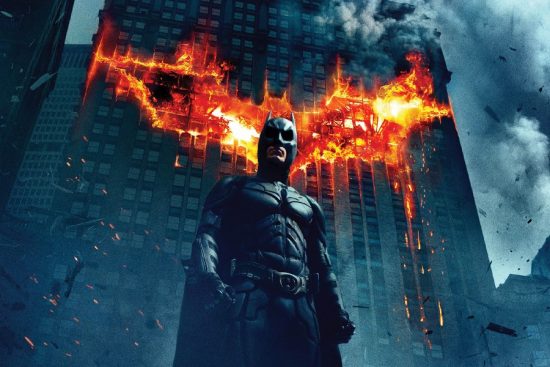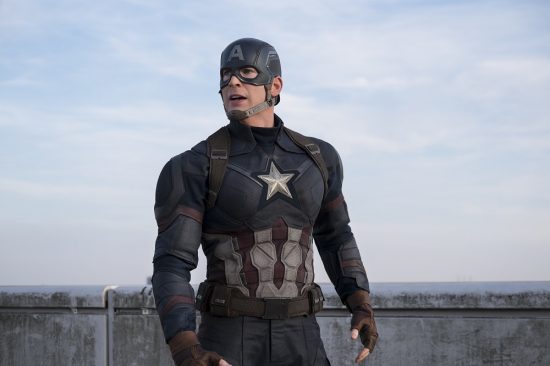Hey, China! Why do I have to wait so long to watch Spider-Man: Homecoming?
I don’t think I will ever regret moving to China but, boy does it sometimes suck being a fan of Western cinema and moving to China. (That would be Western-produced cinema, not the dry-aired, tumbleweed, “Draw!” kind of cinema.)
At the premiere of The Great Wall, Matt Damon was quoted saying, “It’s kind of surreal being here.” Given that he had spent the better half of a year living and filming in China to then attend the film’s premiere at the famous Grauman’s Chinese Theatre in Los Angeles, it’s easy to agree with the man.
As an Englishman living in China I can be heard almost daily saying, “It’s kind of surreal being here,” and I usually follow it up – as Englishman cinephile – with, “and God, it’s annoying sometimes.” It’s not just that sometimes I forget to check the language presentation of a given film, so have been known to watch a foreign (Western) film in spoken Chinese with no subtitles. No, it’s not the growing influence of Chinese markets and studios that annoy me either. It’s things like films opening later than the typical Western market release date or not at all. Spider-Man: Homecoming has only just been announced for release in Chinese cinemas and I’ve still got to wait until September 8th. (That’s right, it wasn’t just a case of waiting for Homecoming eventually – it was waiting in anticipation of it even being released in China.)
China can only show a limited number of foreign films per year (by their own decree) to ensure that their people aren’t oversaturated/influenced by outside cultural products which means that the films that do get shown go through a rigorous process of decision-making regarding potential profits (more often than not a fully foreign film is either ‘bought’ by China so all profits go directly to China and the foreign studios simply receives an outright sale sum; or studios agree with Chinese distributors on a shared revenue plan, where the foreign studio gets just 25% of a film’s profits). These deals, along with editing changes/censorship and other trivial circumstances is why foreign films are released in China on such a huge delay. It’s the reason that although the world thought that a sequel to Terminator: Genysis or Warcraft was completely out of the question because of low performance, hope was gleaned when the films exploded in the China. In the case of Warcraft there were/are rumours that it could be the first Hollywood film produced for export, not being released in cinemas within the USA altogether.
This means that for one reason or another some of Western cinema’s most popular/influential films were never released in China following the Chinese Film Bureau deeming them not Chinese-friendly enough. For example, seminal works such as The Dark Knight, Back To The Future, and The Departed never made it to the People’s Republic due to aspects of the film’s that shined a not-so-positive light on China’s government or populace.
This scrutiny, paired with Western studios’ desire to make as much money as they possibly can is why some moviegoers today feel like Hollywood films (in particular) are being compromised. Roland Emmerich’s epic invasion film Independence Day was never released in China way back when. Given, however, that large-scale sci-fi CGI schlock-fests have been known to draw audiences in China the lacklustre sequel was crammed with Chinese product placements and a strong pro-China plot featuring some of the country’s biggest stars. Movies begin clamouring to appeal to the Chinese market just so they have a better chance of making more money. Much more money.
That’s not to say that I condemn the so-called pandering. On the contrary, I think it’s great that more and more we’re seeing international partnerships not just in the political world but in the continued development of the entertainment industry too. Cultures mixing is a fascinating thing – especially for storytelling. Of course, when the main outcome of that is Transf4mers: Age Of Ridiculousness, Product Placement and History/Culture Appropriation, then, yeah, that’s not so great. However, once in a while films such as the incredible Arrival or Captain America: Civil War (featuring a China-friendly plot and subtle Chinese product placement respectively) come along sans-narrative/stylistic compromise and blow everyone’s minds away.
Sometimes films are adjusted in a way that annoys audiences beyond incidental plot points and product placement though. Take Marvel’s Doctor Strange, which not only abandoned its Tibetan roots to appease the Chinese market but also the nationality of one of its major characters. A huge stir was caused surrounding racism, whitewashing and sexism. However, the film itself did nothing to portray a country, race or gender unfairly so you could argue that Marvel, ultimately, did nothing wrong by rewriting parts of its own property. Strong opinion, I know, but an American company can do whatever it wants with its own products, really. If someone wants to change that, they’ll just have to get their own major film studio and make movies in a manner that they see fit – which brings me to my next point:
Another way China can bypass the limited foreign film quota is if Chinese studios themselves fund/co-fund a film. Sometimes this funding is just something that makes sense for the producing parties, like with The Great Wall or the Kung Fu Panda franchise. Sometimes, it’s completely out of the blue. Process this: the Jake Gyllenhall, Rachel McAdams all-American fighter movie Southpaw was a fully funded Chinese film. Heck, Legendary Entertainment, the studio responsible for most of Christopher Nolan and Zack Snyder’s filmographies was purchased by Wanda Group, a Chinese film company in 2016, meaning that Chinese cultural, historical and character representation will be more directly addressed in what will be the effectively Chinese-American films, Pacific Rim: Uprising, Jurassic World: Fallen Kingdom and Godzilla: King of the Monsters (say what you will about that last one since Godzilla hails from Japan).
Look, certain aspects of the changes we’re seeing to Western entertainment can occasionally be annoying (why is there a Chinese Construction Bank ATM machine in Texas, Transformers film?! You’ve completely taken me out of the realistic moment now, Michael Bay) but ultimately, in the long run, Hollywood has always made schlock hits and interesting misses, and they’ve always pandered to one audience or another – some issues are now just a little bit global. So, shining opinion of where entertainment partnerships are going I’ll get back to my personal irritation at hand:
China… Stop playing about. I’ve missed out on joining in on the global conversation about how Tom Holland is ‘the best Spider-Man ever’. Spider-Man is my favourite superhero and I can’t believe that I’ve still not seen the film. Hurry it up.
On that note, I also refuse to believe that you’re going to release Star Wars: The Last Jedi on January 5th 2018, a full three weeks after the rest of the world has seen it. Instead of pleasing the people within your walls, you’re pissing us off. I have genuinely booked flights to Japan in December to see the worldwide cultural phenomenon with the rest of the world when it’s released on December 15th. For goodness sake.














